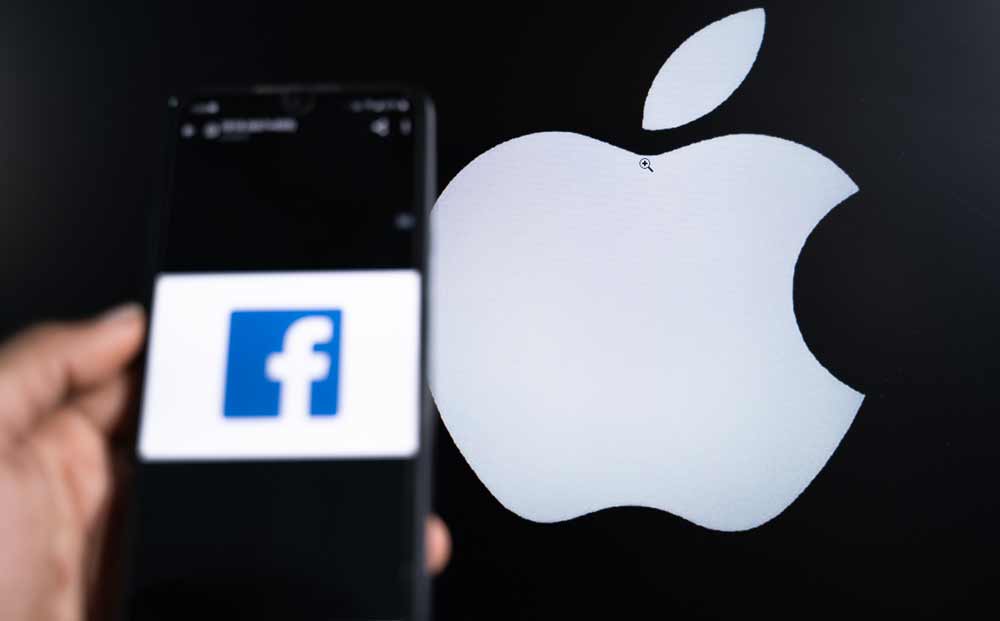A few of us can still remember a world without Facebook, but can we imagine a world where Facebook doesn’t exist anymore? For some, Facebook is an invaluable marketing tool; for others, it is a way to stay connected; and for some, it is the digital boogeyman.
We are entering a new, digital age. But do we really trust Meta (the company Facebook has morphed into) to be at the helm, a company that has had more scandals than a politician at a garden party? A quick glance at the headlines reveals that Meta’s stock has taken a nosedive, fueled by sexual harassment on their Metaverse, #deletefacebook trending, Apple launching new anti-tracking features, and a data transfer dispute with the EU with Meta threatening to remove its services from the continent.
Headline Roundup
On 2 February, Meta’s shares plunged over 22%, knocking €177 billion off the valuation of the company. For the first time in Facebook’s history, the number of daily active users fell, from 1.930 billion to 1.929 billion. Losing users is always a blow to a business, but especially so for a social network where each departing user makes the network less valuable to those who remain.
While it is hard to pinpoint the exact reason for this drop, recent headlines suggest that Meta is facing an uphill public relations battle. Meta’s foray into the metaverse has stumbled into a problem that has plagued online video games for decades: harassment and bullying. In December 2021, one of the beta testers of Horizon Worlds (a virtual space on the metaverse) reported how her avatar was groped by a stranger. She explained how ‘VR [virtual reality] adds another layer that makes the event more intense.’
The whistleblower Frances Haugen’s Parliamentary hearing in the UK has also heard how Meta allegedly put profit before user safety. This compounds with other scandals the company has faced in the past, such as the Cambridge Analytica scandal in 2018, the use of the platform to incite genocide against the Muslim Rohingya minority in Myanmar, and its role in the US Captiol Riots in 2021.
Mark Zuckerberg (Meta’s CEO), on the other hand, was quick to attribute Meta’s drop in value to increased competition from TikTok, which tackles a demographic (young adults) that Meta can’t seem to retain. Furthermore Apple’s App tracking transparency policy, which allows users to prevent apps from tracking their online activity, has also struck Meta a significant blow.

Closer to home in Europe, Meta has explained how, due to the lack of legislation in secure EU-US data transfers, running its platforms (such as Facebook and Instagram) might no longer be viable. Such bold claims are not something new for the tech giant, who in early 2021, went head-to-head with Australia. Meta, as well as other tech companies, have faced off against governments in recent years. When a company’s value exceeds the GDP of most countries, it is inevitable that they will try to influence the global political theatre to their advantage.
Australia EU vs Meta
In order to see how the recent impasse between the EU and Meta might unfold, it is worth taking a look at how events played out in the land down under. This time last year (February 2021) Facebook was once again on the international news — facing off Scott Morrison (aka Scotty from Marketing), the Prime Minister of Australia. Australia wanted to introduce legislation that would see tech giants such as Meta and Google pay for hosting Australian news. The situation quickly escalated when Meta blocked news to Australians in response. Sugar mountain Mark tried to play hardball, saying the ban would end ‘in the coming days.’ This approach backfired and resulted in a PR nightmare. Caught in the crossfire were pages from government health and emergency services trying to advise the public about raging bushfires and the launch of a nationwide COVID-19 vaccination programme.
This brings up a worrying issue, with a private company attempting to strong-arm an elected, democratic government into reversing or adjusting legislation. Essentially, the economic interests of a small minority are pushed ahead of the well-being of the public. In the 1950s, the tobacco industry lobbied heavily to mislead the public about the catastrophic effects of smoking. Arguably we are seeing the same thing happening with Big Food. Meta’s strategy is hardly different, muddying the waters and downplaying the harmful effects the social media platform has on people’s mental health.
The dispute between Meta and Australia was quickly resolved, and the EU has so far stood its ground against Meta’s statements. While the EU and Meta continue to battle it out, we can speculate how Meta’s withdrawal might impact the continent. Will we say good riddance, or will we risk a social media power vacuum? Perhaps other social media platforms will come to the fore?
#deletefacebook
Luckily, we were given a taste of what a few hours without Facebook would be like. On that fateful day, 4 October 2021, Facebook went offline, and despite the delicious irony of Facebook needing to announce it on their rival’s platform, Twitter, few people batted an eye. Certainly, the impact varied from person to person, but for the most part, the incident was chalked up to a humorous quirk. For the average user, the disappearance of Facebook would only be a minor inconvenience until they emigrate to a new platform. Yet, a new platform does nothing to address the unethical practices that these businesses depend on.
For businesses that rely so heavily on Meta for their marketing, Meta’s withdrawal from the EU could prove much more challenging. In the eyes of these companies, Meta has essentially established itself as a utility company, the digital equivalent of electricity or water providers. Meta provides a crucial service for businesses and companies; it allows them to not only advertise their products but to communicate directly with their customers (think Facebook Messenger or WhatsApp). Meta’s withdrawal wouldn’t necessarily cause a dent for giants which can afford to invest in contingency plants and alternatives, but it could be lethal for small businesses. NGOs, small to medium enterprises, and charities rely heavily on Meta, and if Zuckerberg does decide to withdraw, it could spell bankruptcy for them. Regardless of what happens, it seems that it’s the little fish that will fry first.
While many of us claim to despise Meta and its unscrupulous practises, are we willing to see the giant go the way of the dodo? It is unfair to paint Meta completely as the bad guy. Sure, they’ve been embroiled in numerous scandals, particularly about data privacy, but it is this very data that is helping companies develop innovative software and advanced artificial intelligence. Meta has undeniably been instrumental in bringing about a new digital age. Meta and other tech giants are at the forefront of new technology, with legislation pathetically trying to keep up with the speed of technological advancement. It feels as though policy makers and legislators are expecting these big companies to behave themselves out of their own sense of goodwill.
It is too soon to tell whether this is the beginning of the end for Meta; however, we have started to see chinks in their armour.






Comments are closed for this article!